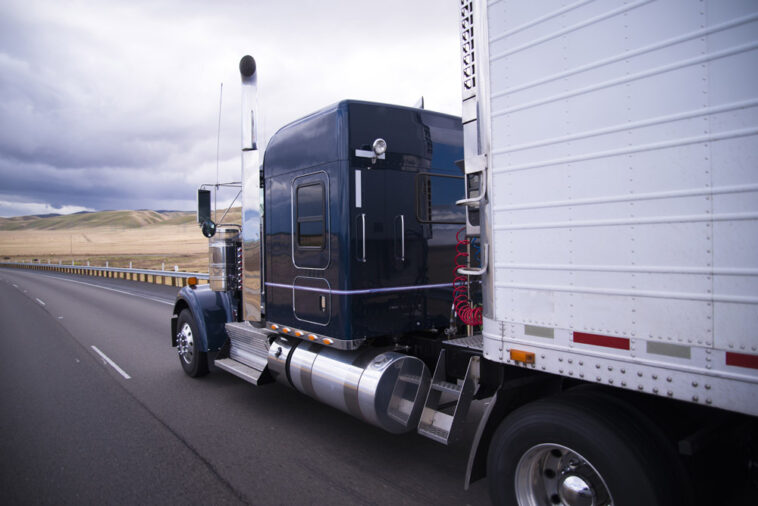Full truckload (FTL) shipping with temperature control is vital for transporting perishable goods like food, pharmaceuticals, and chemicals. Having the right temperature-controlled equipment and processes ensures these temperature-sensitive products are delivered safely and efficiently.
The following guide provides information about FTL trucking with temperature control.
Equipment Needed
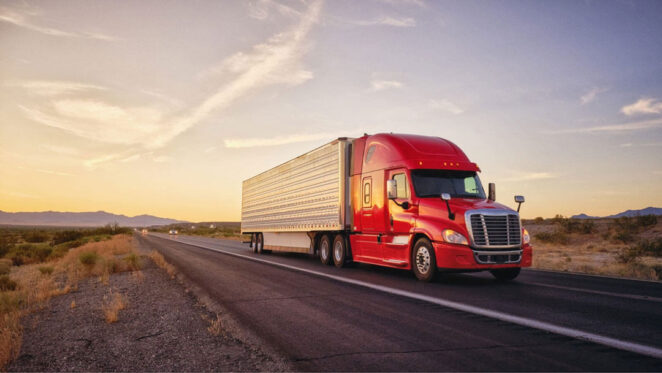
Specialized equipment is required for temperature-controlled FTL shipping. Refrigerated trailers or reefer trailers, such as those owned by Ease Logistics (easelogistics.com), have insulation and refrigeration units that can maintain set temperatures.
Reefer trailers keep goods cool with temperatures around 35°F or can freeze goods down to -20°F if needed. Insulated truck bodies and containers are used for frozen foods like ice cream that need very cold consistent temperatures. Heated trailers have ventilation and heating units for hauling goods like chocolate or wine that require warmer but stable temperatures above freezing.
Air ride suspension and premium insulation provide smooth rides and maintain interior temperatures. Diesel-powered transport refrigeration units (TRU) are mounted on the front, side, or under the trailer to control the temperature.
Generators act as backup units in case the main TRU fails en route. Tracking systems with sensors monitor cargo and alert drivers if temperatures go out of set ranges. These features ensure the goods remain protected throughout the journey.
Quality Processes
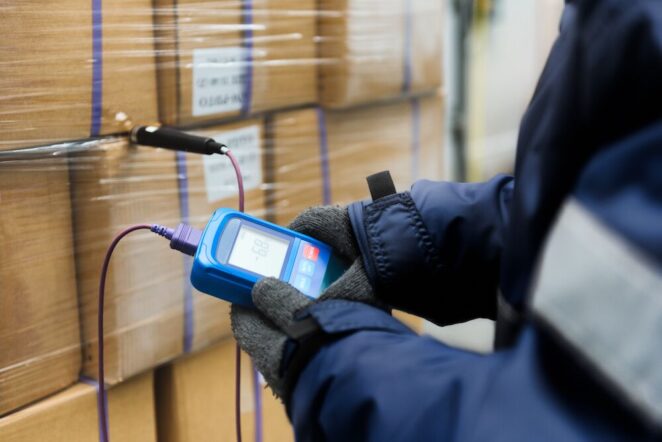
In addition to advanced equipment, FTL temperature-controlled shipping requires stringent processes. Precise temperature settings must be programmed into the TRUs based on cargo requirements. Foods like meat, dairy and produce need specific cold chain temperatures to avoid spoilage.
Truck and trailer equipment must go through regular maintenance checks before trips to ensure refrigeration units, door seals and insulation are in top working order. Trailers are pre-cooled before loading to get the interior to the correct set temperature, as perishable items can’t be loaded into a warm trailer. Load plans strategize where temperature-sensitive cargo is placed correctly, with airflow in mind. Compatible products can be loaded together.
Drivers monitor onboard tracking systems closely for temperature fluctuations and mechanical issues that must be swiftly addressed. Meticulous temperature logs record trailer interior temps at regular intervals throughout the trip, aiding root cause analysis if anomalies occur.
Contingency plans outline how to handle refrigeration failures, potentially including mobile cooling units, product transfers, or disposal. Upon delivery, receivers verify shipments arrived at the right temperature through data logging and product assessments.
Benefits of Temperature-Controlled FTL
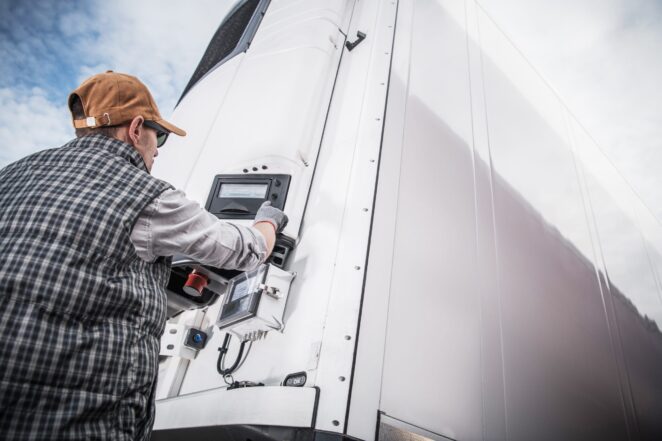
There are many advantages to having robust temperature-controlled processes for full truckload shipping. It maintains product safety and integrity by preventing spoilage, loss of efficacy, or changes in chemistry.
It complies with cold chain regulations for foods, pharmaceuticals and hazardous materials, reduces risks associated with shipping temperature-sensitive goods, and inspires customer confidence in the quality and reliability of the logistics operation. Temperature-controlled FTL expands options for large freight needing temperature control beyond parcel or LTL shipping.
This option allows flexibility in managing different temperature requirements across varied cargo. Temperature tracking data provides verification and recourse if disputes arise over freight conditions. Overall, FTL temperature-controlled shipping provides the equipment, processes, and scale vital for transporting perishable and climate-sensitive freight safely and efficiently.
While costly, it is essential for industries moving high-value, time- and temperature-sensitive products. With the right provider, resources and protocols, businesses can meet their cold chain shipping needs with full truckload services.
Hiring a Trucking Company to Handle Temperature-Sensitive Freight

When hiring a trucking company to transport temperature-controlled freight, there are several key factors to consider. First, examine the company’s experience and reputation in transporting refrigerated and frozen goods.
Do they have a proven track record with minimal cargo damage or spoiled shipments? Ask for customer references to get direct feedback.
Evaluate the trucking company’s equipment. Do they operate climate-controlled trailers and refrigeration units capable of maintaining consistent temperatures for the type of freight you need to ship? Make sure their equipment is modern, well-maintained, and has monitoring capabilities are in place.
In addition, understand their network coverage and capacity, especially for any regular routes you may have. Can they consistently provide enough refrigerated trucks and trailers to handle your volume needs? Get guarantees on equipment availability written into the contract.
It’s also important to vet their drivers’ training and expertise in hauling temperature-sensitive freight. Well-trained drivers will understand how to monitor and adjust refrigeration units as needed to maintain proper temperatures.
Ask the trucking company if it has a contingency plan in place. Temperature-sensitive freight like food, medicine, and chemicals require careful handling to maintain product integrity. A trucking company hauling these goods needs a solid contingency plan in case something goes wrong en route.
Equipment failure, traffic delays, or accidents could compromise a temperature-controlled trailer, leading to unsafe or unusable cargo.
Having backup trucks, alternate routes, and emergency refrigeration on standby allows the company to respond quickly to problems and ensure timely, temperature-controlled delivery. Refregerated containers are the key to modern transport and having a few in the backup can only improve your security. Get reefer at Conexwest and ensure the smooth operation of your business. Without thorough contingency plans, hauling temperature-sensitive freight puts customers and the company’s reputation at risk. A flexible, proactive approach helps guarantee successful transport regardless of unexpected issues arising.
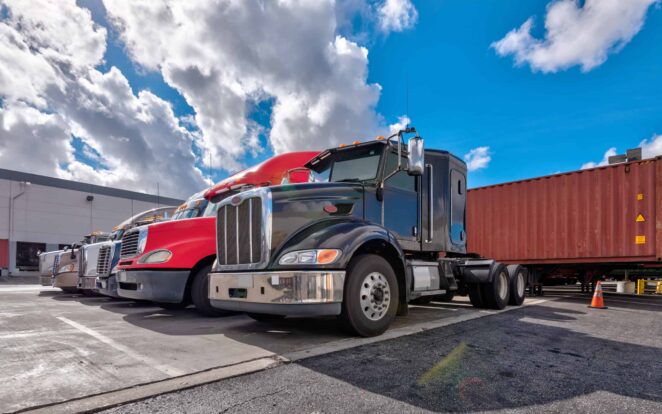
An FTL trucking company transporting temperature-sensitive freight like pharmaceuticals or perishable foods needs adequate insurance coverage. If the refrigeration unit fails during transit and the cargo gets too warm, it could completely spoil and become worthless.
The customer deserves full reimbursement for the damaged goods. Comprehensive cargo insurance covers the trucking company and customer in case of equipment failure, traffic delays, weather events, or other unforeseen circumstances that may compromise a temperature-controlled shipment.
Finally, compare rates and service levels. Seek fair market value pricing, but don’t let the decision come down to cost alone. The ideal trucking partner will provide competitive rates combined with high-quality expertise in temperature-controlled freight management. Weigh all these critical factors when hiring a trucking company for refrigerated and frozen transport.
When transporting temperature-sensitive goods like pharmaceuticals or food, it’s crucial to hire a reliable FTL (full truckload) company. You need an experienced carrier with a modern climate-controlled fleet and real-time GPS tracking. To ensure the security and traceability of your goods, consider using an asset tracking device to monitor their whereabouts throughout the transportation process.
Verify their expertise in temperature-controlled logistics and compliance with industry regulations. Inquire about their preventative maintenance schedule and driver training programs. To protect your shipment, require them to provide temperature data logs and implement a robust quality control program.
Although FTL refrigerated transport often costs more, the extra expense is worthwhile to ensure your temperature-sensitive cargo arrives safely at its destination.



